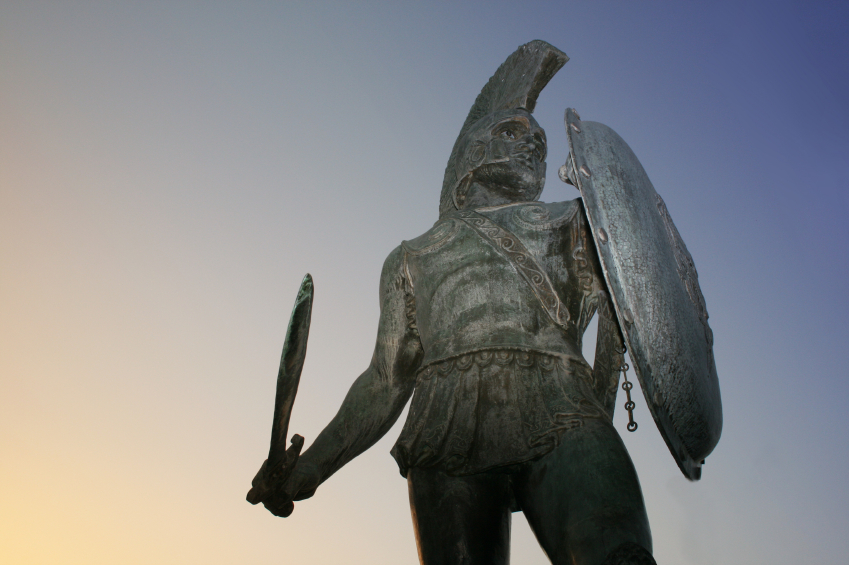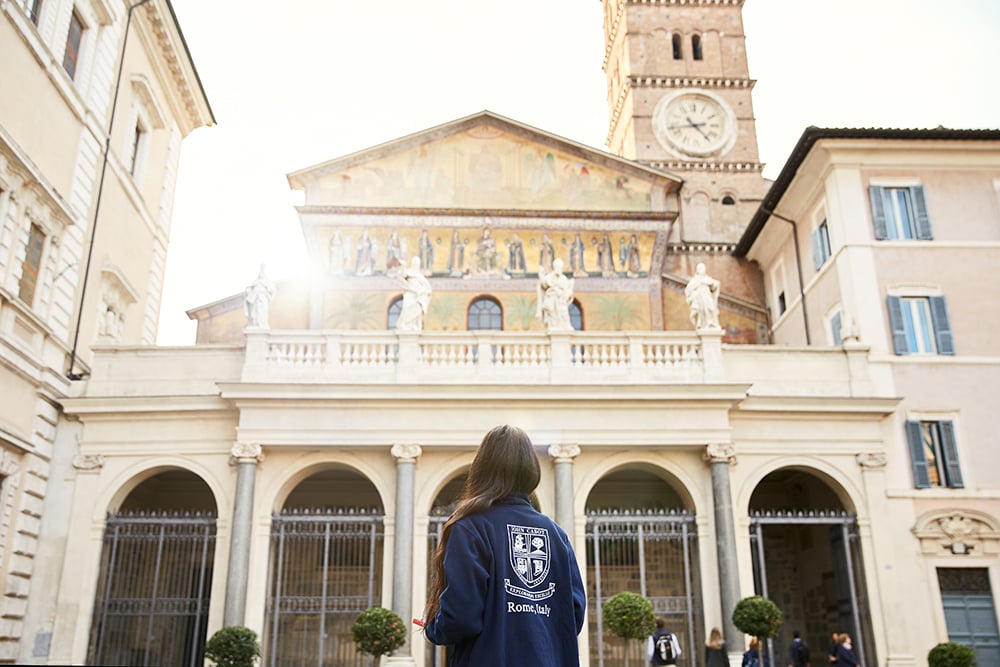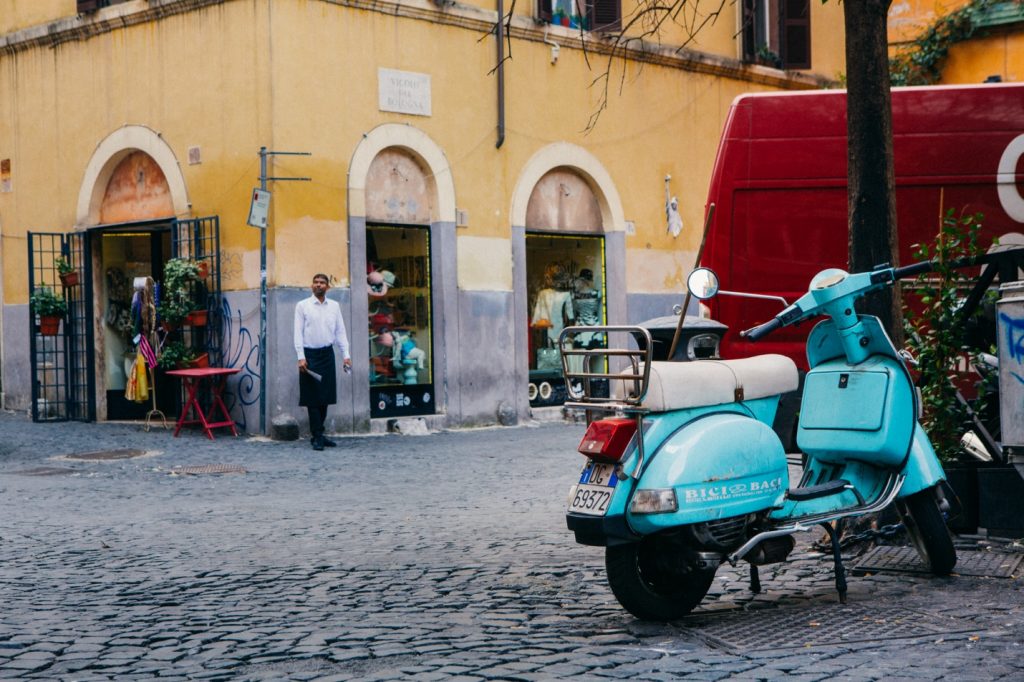

Studying ancient civilizations is about more than simply examining the past, it can also help us develop a deeper awareness of ourselves and our current epoch. At John Cabot University, with majors such as Humanistic Studies, History, Italian Studies, Art History and Classical Studies, students are able to take classes and learn how our current ideas, customs, and practices have often been inherited and evolved from the past, and how they have changed throughout time.
JCU is an ideal place to learn about the wonders of ancient Rome. On one hand, students can take advantage of lectures and seminars led by specialized faculty; on the other, they have direct access to the exceptional primary sources and inspiring artifacts of the Eternal City, which they can explore both as part of a class and on their own. This unique combination of theoretical and experiential learning can enhance your education in an impactful way. Read on for a few modern practices and concepts that we’ve inherited from the ancient Romans.
Ancient Romans Were Extremely Innovative
The legacy of the ancient Romans goes far beyond the Colosseum and other amazing ruins that we see today. We might not realize it, but our world as we know it would not exist if it weren't for many of the inventions and innovations brought on by this ingenious civilization.
Among the most famous inventions are the aqueducts, a marvel of engineering that supplied water where it was needed, such as farms, fountains, baths, and latrines, by means of gravity alone. The aqueducts were so well built that some of them are still in use to this day, such as the one that supplies the Trevi Fountain. Roman roads are also famous for their innovativeness and durability. They were essential in helping maintain and expand the Roman Empire, providing an efficient and comfortable solution for the transportation of armies, goods, and people. As a study abroad student in Rome, you will have the unique chance to walk on some of these old roads, such as the famous Appia Antica.
Other lasting legacies originating from the ancient Romans include sewage and pipe systems, the invention of concrete, the use of solar power to heat buildings, water-powered mills, and many developments in the field of surgery, to name just a few - the list is rather long!

The Modern Western Calendar Was Taken from Ancient Rome
Our modern twelve-month calendric system is also an inheritance from the ancient Romans. The names they invented for each month are still in use today, the etymologies of each are significant to the Roman classical society.
Studying the month’s names, we can see the Roman aspects of how we measure the passage of time. January has its root in “Janus”, an ancient Roman god, while July is rooted in “Julius”, named after the Roman emperor Caesar. While you study abroad, you can examine these words for their resonance to Roman history.
Examine Ancient Highways While You Study Abroad in Rome
Asphalt highways are today considered to be iconic symbols of industrialization and urban expansion. However, they hearken back to ancient Rome. Ancient Romans’ highways were so well-made that some continue to be used to this day. While visiting Rome, set some time aside to study the famous Via Appia, a functional ancient Roman road.

Do you want to take a deeper look at ancient civilizations while you study abroad in Rome?
Contact John Cabot University's Admissions Office at admissions@johncabot.edu for more information.




